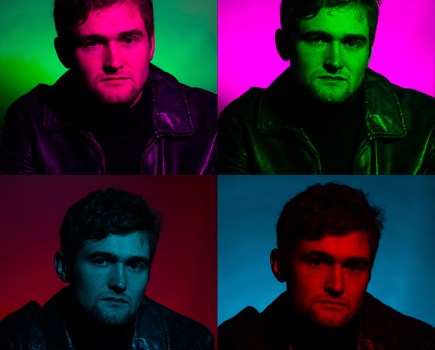The UK’s privacy watchdog has confirmed it has launched an investigation into whether police use of the ACESO kiosks breach data protection rules.
The new machines are deployed at police stations to extract and retain data from mobile phones, GPS devices, SIM and media cards, for use as potential evidence even though a suspect may not have been charged with a crime.
Amateur Photographer (AP) understands that every police force in the country has the option to use the equipment, though it is an operational matter for each one whether they choose to do so.
They were rolled out to the Metropolitan Police in London as far back as April, according to the device’s manufacturer Radio Tactics.
Earlier this year, former Met DCI Peter Kirkham assured the makers that the equipment complies with the Police and Criminal Evidence Act and Data Protection Act – as before when suspects’ phones would be sent off to a lab for forensic analysis.
Data protection probe
However, speaking to AP following a report in the Sunday Times, a spokesman for the Information Commissioner’s Office (ICO) said: ‘The ICO is currently looking into this issue and will be considering whether any action is necessary to help ensure compliance with the Data Protection Act.’
The ICO spokesman added: ‘Mobile phones are no longer just used simply as phones – they increasingly hold a wide range of personal information about the user and others such as friends and contacts.
‘These details can range from contact details and text messages through to personal notes, photos and web-browsing histories.
‘If police forces are examining the content on mobile phones and are wanting to use that information, this would need to comply with the Data Protection Act.’
The devices can be used to produce an evidence report in as little as 20 minutes, according to Radio Tactics which, on its website, states they can retrieve data including photographs, video, text messages, email and social networking information.
‘This allows those on the frontline to increase the numbers of “real time” examinations and provides the capacity to investigate high volume and low-level criminal cases.’

The Aceso machine, as shown on the website of its manufacturer, Radio Tactics
The project is backed by the Association of Chief Police Officers (ACPO), which co-ordinates police strategy across the 44 forces in England, Wales and Northern Ireland.
ACPO’s Data Communications spokesman Assistant Chief Constable Gary Beautridge, told AP: ‘The use of digital forensic evidence is often intrinsic to police investigations and ensuring the police have the capability to use it is critical in our role to keep the public safe.
‘If a mobile phone device has been used in the commission of a crime, it can be seized as evidence, just like a diary or an address book.
‘A person’s mobile phone is only examined where it has been seized due to a direct link to an offence being investigated.
‘The seizure of evidence is enshrined in law and retention is governed by statutory codes of practice.’
‘Pilot’ project
Seven police forces confirmed their use of the technology to Sunday Times political correspondent Mark Hookham, but the newspaper suggests that the number is probably much higher.
When contacted by AP, ACPO denied that the practice is part of a nationwide project but a spokeswoman said she did not have a list of the forces currently using the equipment.
The Metropolitan Police confirmed to AP that the technology is used across 16 London boroughs.
A Met spokesperson said the equipment is used to solve crimes such as robberies and burglaries, once a person has been arrested on suspicion of committing an offence.
The Met scheme is part of a 12-month ‘pilot’ project, but the spokesperson was not able to say when it was due to finish.

More than 300 Met police officers were in line to be trained up to use the equipment, according to a press release issued by Radio Tactics in April.
The ICO has submitted evidence on the matter to a Joint Select Committee of MPs and Peers which is meeting to discuss the Draft Communications Bill.
Police are also expected to give evidence to the committee.







